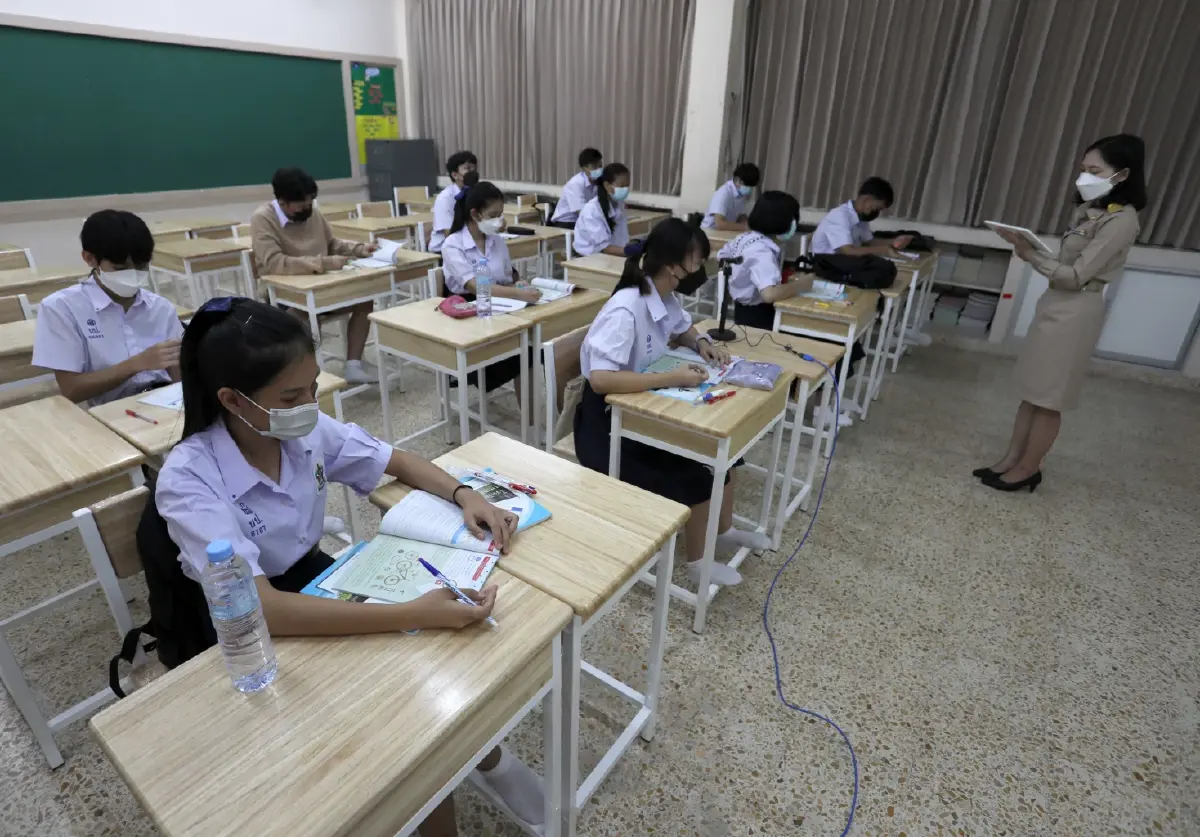Thailand launches policy for students to earn while studying

Thailand’s Ministry of Digital Economy and Society is launching a policy aimed at enabling students to earn extra income while continuing their studies, to re-engage children who have dropped out of school. This initiative is part of a broader strategy to address the growing issue of school dropouts in the country.
In a meeting held yesterday, November 13, chaired by Digital Economy and Society Minister Prasert Jantararuangtong, the Thailand Zero Dropout committee convened for the first time. Nahathai Thewphaingarm, who serves as an assistant to the Prime Minister’s Office’s minister and as vice-chairwoman of the committee, was also present.
The committee’s mission aligns with the government’s education policy, focusing on reducing dropout rates among youth. A key component of this effort involves a flexible programme that allows students to work part-time while studying. This initiative aims to provide the necessary financial support to help students continue their education.
By integrating practical work experience with education, the programme seeks to enhance career skills and align with current labour market demands. Partnerships with private sector entities are expected to play a significant role in this aspect of the programme.
The Learn to Earn project underpins this initiative, with key contributions from the Ministry of Finance, the Thai Chamber of Commerce, the Federation of Thai Industries, and the Equitable Education Fund. These organisations will spearhead the implementation efforts.
The Thailand Zero Dropout Committee is committed to overhauling the education system to facilitate lifelong learning opportunities for individuals of all ages. This effort is a response to the government’s comprehensive nine-point education master policy, which was unveiled on September 12.
Dropout issue
Prasert, who also holds the position of deputy prime minister, emphasised the need for a long-term strategy to address the dropout issue. He highlighted that this matter was prioritised by the Cabinet on May 28, with a particular focus on assisting the 1.02 million children currently outside the mainstream education system.
Efforts will be concentrated on improving data integration and sharing among various agencies. This will enhance the ability to identify and support out-of-school children, helping them return to either formal or informal education settings, and potentially offering them vocational training, reported Bangkok Post.
To further advance the policy, a subcommittee will be established to facilitate data integration from diverse sectors. This will allow for more effective allocation of resources, including welfare budgets from organisations such as the ministries of Public Health, Social Development, and Human Security.
Latest Thailand News
Follow The Thaiger on Google News:


























